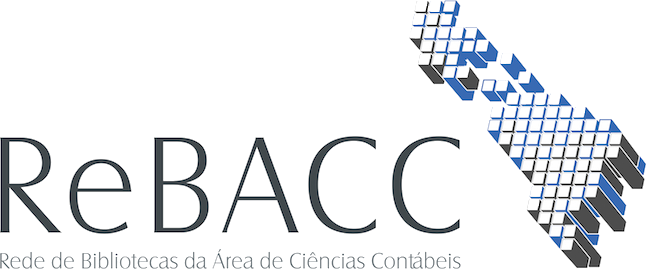Use este identificador para citar ou linkar para este item:
http://rebacc.crcrj.org.br/handle/123456789/1468| metadata.atena.dc.title: | A EVIDENCIAÇÃO DOS DERIVATIVOS NO BRASIL: UMA TENTATIVA DE CONVERGÊNCIA PARA PROCEDIMENTOS INTERNACIONAIS The disclosure of derivatives in Brazil: an attempt at convergence for international procedures |
| metadata.atena.dc.creator: | Claudio Filgueiras Pacheco Moreira Álvaro Vieira Lima |
| metadata.atena.dc.subject: | Financial Derivatives; Financial Market Brazil; Futures Markets; Derivativos Financeiros; Mercado Financeiro Brasileiro; Mercado Futuro |
| metadata.atena.dc.date.issued: | 2014-11-12 |
| metadata.atena.dc.publisher: | REVISTA DE CONTABILIDADE DO MESTRADO EM CIÊNCIAS CONTÁBEIS DA UERJ |
| metadata.atena.dc.description: | O crescimento e a consolidação do uso dos derivativos nos mercados financeiros de inúmeros países transformou-os em elementos integrantes dos processos de gestão de negócios. A ciência contábil, por seu turno, teve dificuldades para acompanhar esta evolução, pois não possuía em seu arcabouço conceitual elementos capazes de assegurar-lhes a
adequada evidenciação. Esta dificuldade foi logo percebida quando os profissionais da área contábil e financeira
resolveram considerar as operações com derivativos como off-balance sheet. A fragilidade da metodologia adotada ficou
evidente e agravou-se na medida que o volume de operações com derivativos crescia. Tornavase necessário desenvolver procedimentos capazes de incluir tais operações como ativos e
passivos, melhorando significativamente a evidenciação.
Tais fatos impulsionaram as pesquisas por parte de instituições reguladoras como o Financial Accounting Standards Board – FASB (regulador nos EUA) e International Accounting Standards Board – IASB (regulador responsável pela elaboração das
normas internacionais), que implantaram recentemente procedimentos mais adequados. No Brasil ainda há poucos estudos acadêmicos, mas o BACEN, impulsionado pelo
contexto transnacional dos mercados financeiros, desenvolveu procedimentos que tentam se aproximar do contexto internacional. Por outro lado, criou-se um hiato na contabilidade societária, que faz operações idênticas serem evidenciadas de modo distinto. A solução do problema poderá trilhar outros caminhos distintos dos propostos no presente
artigo, mas deverá criar condições de se evidenciar derivativos a valor de mercado nas contas de ativo e passivo.
Palavras-chave: derivativos financeiros, mercado financeiro brasileiro, mercado futuro.
ABSTRACT
The development and use of derivatives on financial markets have turned them into essential components of business
administration. On the other hand,the accounting science could hardly follow this evolution as conceptual frameworks missed the standards to ensure the adequate disclosure. That issue became apparent afterward accountant and finance experts decided to consider operations as off-balance sheet. The
methodology misconception became clear and worsened as the volume of derivative operations increased. From that point on
procedures for classifying such operations as assets or liabilities were essential to enhance the quality of the reports.
The facts already mentioned prompted the research on regulation institutes such as the Financial Accounting Standards Boards – FASB (in charge of rules setting) – and the
International Accounting Standards Boards – IASB (international standards setting) – which recently carry out more suited procedures. Nowdays in Brazil thereare few academic studies regading this issue, but the Central
Bank once in charge of looking after the crossborder environment of financial markets, defined procedures to line-up with the international context. Even then, a gap has
been created in business accouting whereby the same operations may be reported in different ways. The solutions to that issue may be distinct of the one proposed in this study, but in turn it should support the disclosure of derivatives at
fair value on asset and liability accounts.
Keywords: financial derivatives, financial market brazil, futures markets The development and use of derivatives on financial markets have turned them into essential components of business administration. On the other hand,the accounting science could hardly follow this evolution as conceptual frameworks missed the standards to ensure the adequate disclosure. That issue became apparent afterward accountant and finance experts decided to consider operations as off-balance sheet. The methodology misconception became clear and worsened as the volume of derivative operations increased. From that point on procedures for classifying such operations as assets or liabilities were essential to enhance the quality of the reports.The facts already mentioned prompted the research on regulation institutes such as the Financial Accounting Standards Boards – FASB (in charge of rules setting) – and the International Accounting Standards Boards – IASB (international standards setting) – which recently carry out more suited procedures. Nowdays in Brazil thereare few academic studies regading this issue, but the Central Bank once in charge of looking after the crossborder environment of financial markets, defined procedures to line-up with the international context. Even then, a gap has been created in business accouting whereby the same operations may be reported in different ways. The solutions to that issue may be distinct of the one proposed in this study, but in turn it should support the disclosure of derivatives at fair value on asset and liability accounts. Keywords: financial derivatives, financial market brazil, futures markets |
| metadata.atena.dc.identifier.uri: | http://rebacc.crcrj.org.br/handle/123456789/1468 |
| metadata.atena.dc.identifier: | http://www.atena.org.br/revista/ojs-2.2.3-06/index.php/UERJ/article/view/696 |
| Aparece nas coleções: | Artigos - Atena |
Arquivos associados a este item:
Não existem arquivos associados a este item.
Os itens no repositório estão protegidos por copyright, com todos os direitos reservados, salvo quando é indicado o contrário.

